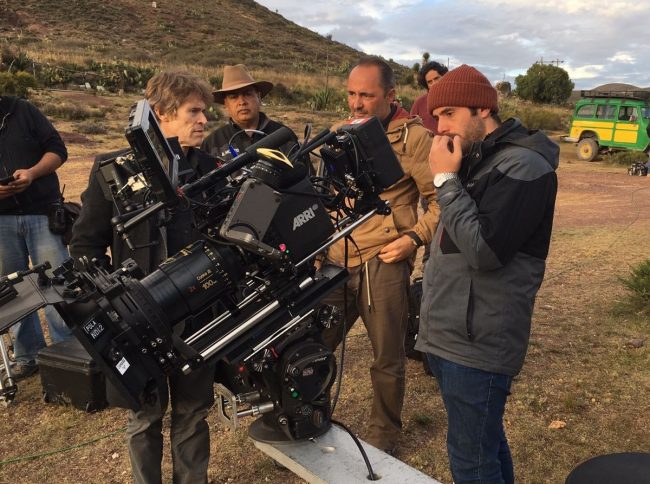
Dir.: Daniel Graham; Cast: Willem Dafoe, Andres Almeida, Cassandra Cianherotti, Irene Azuela; Mexico/Germany 2017, 84 min.
Despite its ravishing Mexican setting, Daniel Graham’s first film is a tired, episodic and empty pseudo-philosophical non-starter that tries to copy Antonioni and completely wastes Willem Dafoe (rather like Padre did recently).
Dafoe plays a composer called Paul who arrives at the Mexican village of Real de Catorce, where his father recently died of a heart attack. His efforts to finish a symphony by a more or less unknown early 20th century composer have failed, and with the help of a real-time translation device invented by his father, he tries to locate a certain Marianne, a young Romanian whose photo his father bequeathed to him. His mission leads to him meeting Maia (Azuela), who gives him a guided tour of the village. They visit a make-shift cinema where Paul falls asleep while watching a Western. Three filmmakers then arrive in the village, led by the director Daniel (Almeida) and his assistant Fernanda (Ciangherotti). They interview Paul, but suddenly the camera gives up its ghost – possibly because of an abandoned magnet factory.
Pretentiously told in two chapters, a prologue and a coda, Opus Zero is the of story of an old man trying to find the meaning of life. It is the worst example of a kind of arthouse cinema that became obsolete in the 1950s. DoP Matias Penachgino fails, understandably, to breathe any life into this stillbirth of a film. Why Carlos Reygadas, one of the associate producers, got involved in the project is a complete mystery. Even at a modest 84 minutes, it seems to last an eternity. AS
ON RELEASE FROM 16 AUGUST 2019